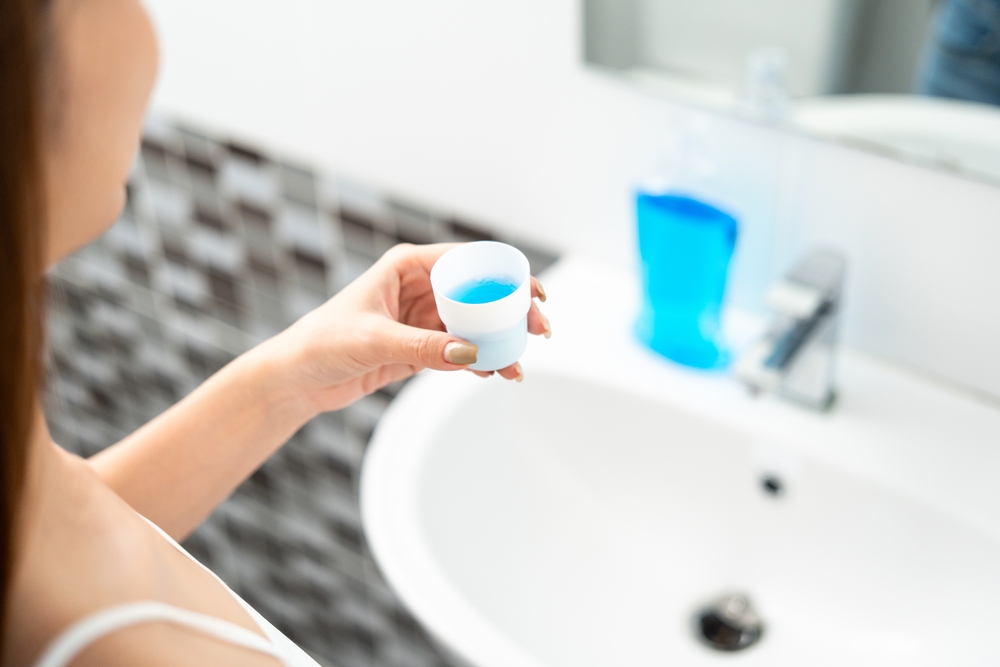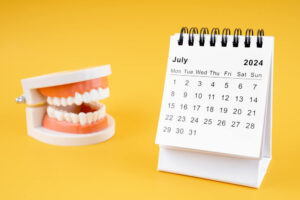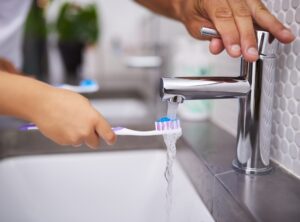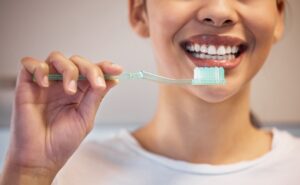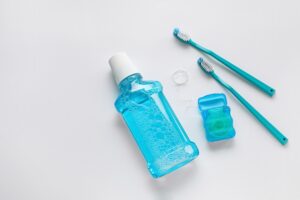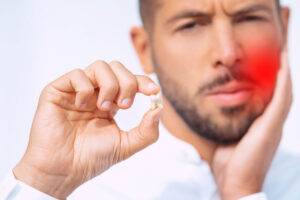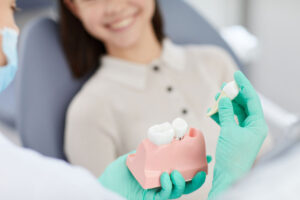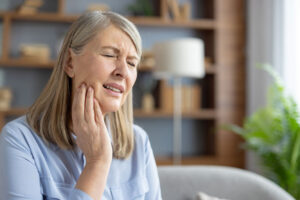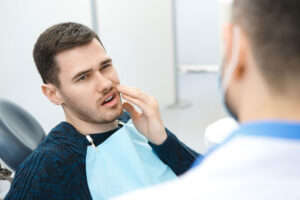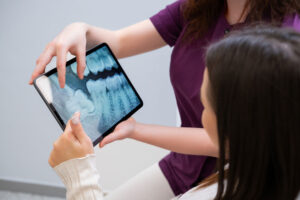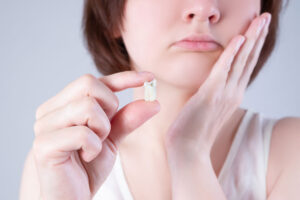Mouthwash is one of the most commonly overlooked yet highly beneficial tools in oral hygiene routines. At Just Pull It Emergency Dental Clinic, serving Spring Hill, Lutz, Tampa, and Zephyrhills, Florida, we frequently advise our patients on the importance of mouthwash, especially in preventing dental emergencies. Dr. Jeff Hameroff and his team recognize that while mouthwash is popular, many people don’t fully understand what it does or when it’s most effective. This guide breaks down the different types of mouthwash, their benefits, and how to use them properly for maximum oral health.
What Does Mouthwash Do?
Mouthwash serves several purposes, depending on its formulation. While it’s often associated with freshening breath, its potential benefits extend far beyond that. Here are some of the key functions that mouthwash can provide:
1. Kills Harmful Bacteria
One of the main functions of mouthwash, especially antiseptic varieties, is its ability to kill harmful bacteria in the mouth. These bacteria are responsible for causing plaque buildup, gum disease, and bad breath. Antiseptic mouthwashes typically contain ingredients like chlorhexidine, cetylpyridinium chloride, or alcohol, which help neutralize bacteria and prevent infection.
For patients who visit Just Pull It for emergency dental issues related to gum infections or abscesses, the use of an antiseptic mouthwash can often help manage symptoms or prevent further complications.
2. Prevents Plaque Buildup
Plaque is a sticky film that forms on the surface of your teeth and gums, and if not removed, it can harden into tartar, which can only be removed by a dentist. Mouthwash, particularly those containing fluoride, can help reduce plaque formation between brushings, making it easier to maintain healthy teeth and gums.
It’s important to remember that while mouthwash can help reduce plaque, it should never be used as a substitute for brushing and flossing. Mouthwash works best as part of a comprehensive oral hygiene routine.
3. Freshens Breath
One of the most well-known uses for mouthwash is its ability to freshen breath. Bad breath, or halitosis, is often caused by bacteria in the mouth that release sulfur compounds. Mouthwash can temporarily mask these odors, but more importantly, antiseptic mouthwashes can reduce the bacteria responsible for bad breath, offering longer-lasting relief.
4. Strengthens Tooth Enamel
Fluoride mouthwash plays an important role in strengthening tooth enamel and preventing cavities. Fluoride is a naturally occurring mineral that helps repair weakened enamel and makes teeth more resistant to acid attacks from plaque and bacteria.
For patients prone to cavities or experiencing early signs of enamel erosion, a fluoride mouthwash can be particularly beneficial. Just Pull It often recommends fluoride-based mouthwash as part of a prevention strategy for patients facing recurring dental issues.
5. Soothes Inflammation
If you’re suffering from gum disease, such as gingivitis or periodontitis, using a therapeutic mouthwash can help reduce inflammation and soothe irritated gums. Ingredients like hydrogen peroxide or chlorhexidine can promote healing by reducing bacteria and inflammation in the affected areas.
When Should You Use Mouthwash?
While mouthwash is a useful addition to any oral hygiene routine, knowing when to use it can make all the difference. It’s not always necessary to use mouthwash after every meal or every time you brush. The frequency and timing of mouthwash use depend on your specific oral health needs.
1. After Brushing and Flossing
The ideal time to use mouthwash is after brushing and flossing. This allows the mouthwash to reach areas of the mouth that your toothbrush and floss might have missed, providing a final cleanse. If you’re using a fluoride mouthwash, avoid rinsing your mouth with water afterward to let the fluoride work on your enamel.
2. After Meals
If you’ve just eaten a meal and don’t have access to a toothbrush, mouthwash can be a great way to rinse out food particles and sugars that can contribute to plaque buildup. It’s especially helpful after consuming acidic or sugary foods, which can weaken enamel and lead to cavities.
3. When You’re Experiencing Bad Breath
If you suffer from chronic bad breath, using mouthwash throughout the day can help keep your breath fresh and neutralize the odor-causing bacteria. Just be mindful not to overuse alcohol-based mouthwash, as this can dry out your mouth and potentially worsen bad breath over time.
4. Before Bed
Using mouthwash before bed can be particularly effective because it helps reduce bacteria that accumulate overnight while you sleep. This is especially important if you’re prone to gingivitis or are recovering from an oral infection, as bacteria tend to multiply when saliva production decreases at night.
5. After Dental Surgery or Procedures
Suppose you’ve had a dental procedure, such as an extraction or implant. In that case, your dentist may recommend a specific type of mouthwash, such as one containing chlorhexidine, to help with healing and prevent infection. Be sure to follow your dentist’s instructions on how and when to use mouthwash during the recovery period.
Choosing the Right Mouthwash for Your Needs
Not all mouthwashes are created equal, and choosing the right one for your needs can significantly impact your oral health. Here are the primary types of mouthwash and their intended purposes:
1. Antiseptic Mouthwash
These are designed to kill bacteria that cause bad breath, gum disease, and plaque. Commonly containing alcohol or other antimicrobial agents, antiseptic mouthwashes are effective at reducing bacteria but may cause dryness for some people. If you suffer from gum disease or have a high risk of infection, an antiseptic mouthwash can be a valuable addition to your routine.
2. Fluoride Mouthwash
Fluoride mouthwash is perfect for individuals looking to prevent cavities and strengthen their enamel. This is especially useful for those with a history of cavities, as it helps protect against future decay. If you’re not getting enough fluoride from your toothpaste or water supply, a fluoride mouthwash can provide the extra protection your teeth need.
3. Alcohol-Free Mouthwash
For people with sensitive gums, dry mouth, or those who prefer to avoid alcohol, alcohol-free mouthwash is an excellent option. These mouthwashes still offer antibacterial benefits but are gentler on the tissues inside the mouth. They are particularly useful for individuals recovering from oral surgery or those prone to dryness.
4. Natural or Herbal Mouthwash
Natural or herbal mouthwashes contain ingredients like tea tree oil, aloe vera, or essential oils and are ideal for those who prefer to avoid artificial chemicals or alcohol. While these may not be as potent as antiseptic mouthwashes, they still offer benefits in terms of reducing bacteria and freshening breath.
How Mouthwash Fits into Your Oral Hygiene Routine
Mouthwash is a helpful tool, but it’s not a cure-all for oral hygiene problems. At Just Pull It Emergency Dental Clinic, we often remind patients that mouthwash should complement brushing and flossing—not replace them. Brushing twice a day for two minutes and flossing at least once daily are still the most effective ways to remove plaque and maintain healthy teeth and gums.
That said, adding the right mouthwash to your routine can enhance your oral hygiene efforts and provide benefits you wouldn’t get from brushing and flossing alone. Whether you’re using it to strengthen your enamel, reduce plaque, or keep your breath fresh, mouthwash has a role in keeping your smile healthy.
Incorporating Mouthwash into Your Daily Routine for Lasting Benefits
Choosing the right mouthwash and using it at the right time can offer numerous benefits, from fighting bacteria to preventing dental emergencies. At Just Pull It, we believe in educating our patients on every aspect of oral care, and incorporating mouthwash into your daily routine can make a big difference. For residents of Spring Hill, Lutz, Tampa, and Zephyrhills, Florida, proper oral hygiene can mean the difference between routine dental care and an unexpected emergency visit.
Sources:
- Sreenivasan, P. K., & Gaffar, A. (2002). Antiplaque Biocides and Bacterial Resistance: A Review. Journal of Clinical Periodontology.
- Gunsolley, J. C. (2006). Clinical Efficacy of Antiseptic Mouthrinses in Reducing Plaque and Gingivitis. Journal of Dentistry.
- Featherstone, J. D. B. (2000). The Science and Practice of Caries Prevention. Journal of the American Dental Association.

